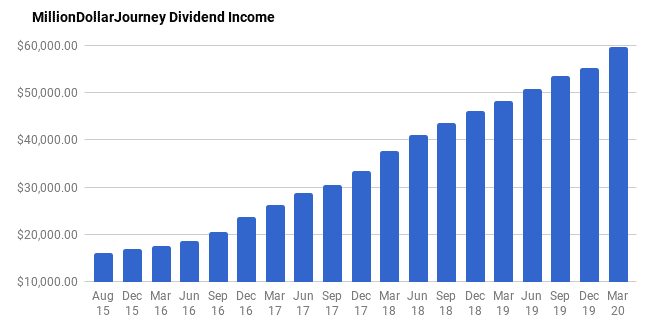Investing in Canadian REITs in 2025
Investing in Canadian REITs can help investors include real estate investments in their portfolios without radically changing their way of life.
Sure, you can buy a property and become a landlord, but if that’s not your bag (or if you don’t have that kind of time, energy, and, let’s face it, cash), you can invest in Canadian REITs (Real Estate Investment Trusts) and gain exposure to the real estate market in bite-sized chunks.
Canadian REITs are fairly easy to invest in, given that they’re typically very liquid and trade on the Toronto Stock Exchange like stocks.
In this post, we’ll introduce you to Canadian REIT investing and how it works. We’ll introduce some of the best Canadian REITS for 2025, and we’ll give you some pointers on choosing REITs and how they compare to other kinds of real estate investment.
What Are REITs
REITs, or Real Estate Investment Trusts, are companies that use investors’ funds to purchase and manage various kinds of real estate. They’re divided into Trust Units, which are available for trading on the stock market just like typical shares are.
REITs allow Canadian investors to share in the income that the real estate generates without worrying about the practical difficulties that come with property management. Like other kinds of investments, Canadian REITs carry the possibility of capital gains if the value of the buildings and properties increases over time.
Canadian REITs own many different types of properties. These include:
- Retail
- Office
- Hotel
- Industrial
- Diversified
- Healthcare (Including assisted living complexes)
- Retail (Apartments)
How to Buy REITs in Canada
Buying REITs s easy as buying anything else through your online brokerage. You can buy an ETF that holds a diversified basket of REITs from various categories. You can also choose to hand-pick a few individual REITs if you want to focus on a certain type of asset (and don’t mind doing some careful market research).
If you don’t have a brokerage account yet, I recommend reading our Qtrade review. Qtrade is currently ranked as our #1 Canadian broker and offers 50 free trades for new accounts.
Best Canadian REITs Comparison
If you are ready to dive right into the world of Canadian REITs, you’ve got plenty to choose from. Selecting your own portfolio of REITs allows you to specialize in a specific type of real estate, whereas a REIT ETF may not.
Our top choices allow you to gain exposure to residential, retail, commercial, and industrial REITs in Canada.
| Real Estate Assets | Price Per Share* | Market Cap | Dividend Yield* | |
| Allied Properties REIT (AP-UN.TO) | Owns over 200 properties throughout major cities in Canada with a focus on office space and data centers. | $26.76 | 3.45B | 6.54% |
| Canadian Apartment Properties REIT (CAR.UN) | The largest REIT in Canada, it operates 67,000 rental apartments and housing sites in Canada, Ireland, and the Netherlands. | $40.57 | $7.06B | 3.57% |
| Granite REIT (GRT.UN) | Offers geographic diversification with 139 properties spanning 5 countries. Focuses on industrial, warehouse, and logistics properties. | $66.51 | 4.38B | 4.66% |
| H&R REIT(TSE:HR.UN) | One of Canada’s largest REITs. Has holdings in single and multi-tenant properties throughout Canada and the US. | $10.50 | 2.82B | 5.23% |
| Inovalis Real Estate Investment Trust (TSX:INO.UN) | A lesser known REIT that specializes in corporate clients in urban areas. All of its properties are located in France and Germany, giving you a great way to gain international REIT exposure. | $4.31 | 141.92B | 9.57% |
| iShares S&P TSX Capped REIT Index ETF (TSX:XRE) | Has a long-standing reputation in Canada, and holds some of the top performing REITS in Canada, such as Canadian Apartment Properties and RioCan Real Estate Investment Trust. | $15.17 | N/A | 4.18% |
| Vanguard FTSE Canadian Capped REIT Index ETF (VRE.TO; TSE.VRE) | Seeks to track the FTSE Canada All Cap Real Estate Capped 25% Index. Maintains 100% North American holdings, with the majority of them being in real estate services, retail REITs, residential REITs and office REITs. | $27.12 | N/A | 3.89% |
Again, these are just a few of the best Canadian REITs and REIT ETFs, but they offer great diversification, both geographically and in terms of the type of real estate holdings. It’s also great to note that there are a number of Canadian REITs that pay monthly dividends.
Risks and Benefits of REITs
Like any investment, there are risks and benefits to investing in Canadian REITs. We’ll start with some pros and cons and then look at the risks that are specific to REITs.
Pros To Investing in REITs:
Easy to Buy and Sell: No mortgage approval needed, no time in escrow, and no home inspections. Just buy the REIT units through your usual investment brokerage.
Easy Diversification: REITs are considered as a distinct asset class, so adding them to your portfolio can be a great way to diversify your investments.
Low Maintenance: Invest in real estate without having to call a repairman or deal with irate tenants. Management is taken care of and REIT holders reap the rewards with distributions of up to 90% of the REIT’s income.
No Down Payment Necessary: Property values have been skyrocketing and down payments are painfully high—but a REIT lets you invest in real estate without waiting to accumulate a large amount of cash.
Cons To Investing in REITs:
Possible Taxation: REITs aren’t subject to corporate taxation, which means that the tax burden is passed on to the investors. We’ll get into this more in a minute, but in a nutshell, this can lead to complicated tax situations. (For this reason, we recommend holding your REITs in registered accounts such as TFSAs or RRSPs, where taxes are deferred or exempted.)
Limited Leverage Ability: Purchasing an investment property with a mortgage allows you to maximize leverage (i.e. use a minimum of your own cash and have the remainder of the cost covered by a lender). While investors do have some leverage ability, the fact is that lenders are less willing to lend large amounts of capital to investors than to property buyers. They’ll also charge more interest on lines of credit and investment loans than on mortgages.
REITs rise and fall in value depending on real estate values, which can be a good thing – or a risky one. On the one hand, REITs can offer a buffer against inflation – for example, if other areas of the stock market are falling and property values are rising.
However, it’s a double-edged sword – if real estate values tumble, the value of REITs will follow. This was particularly damaging during the real estate crash in 2007-9 and during lockdown in 2020 when hotels and tourist-dependent properties were hit particularly hard.
How to Evaluate a REIT
Most REITs are equity REITs. This means that they make the majority of their income from rent, interest on mortgages, or sales of properties.
REITs must pay out a minimum of 90% of their taxable income in shareholder distributions each year. In exchange REITs pay no corporate taxes. This is crucial to understand, since the tax liability for these earnings will fall to you when you invest in Canada REITs.
Basically, all of this means that we can’t use the typical earnings per share and dividend payout ratios to gauge the financial health of a REIT.
Instead we use the Funds From Operations and Adjusted Funds From Operations (FFO & AFFO for short). to analyze a REIT’s financial health and growth potential. Those two metrics replace the earnings and adjusted earnings that we would use for a traditional stock.
While the metrics are different, the focus is the same: it’s all about cash flow and the REITs’ ability to sustain and increase their dividend payments. The FFO reflects the REIT’s income, taking depreciation and property gains into account. The AFFO is adjusted (hence the name) to factor the costs of property maintenance and improvements into the equation. If you want more information, here’s a good primer on FFO.
It is important to consider not just the (A)FFO but also the (A)FFO per unit of ownership. One of the REITs’ favorite methods to finance their new projects is to issue more units. We need to make sure that this isn’t happening excessively, because it dilutes the value of the units that you hold as a current investor in the REIT.
More units means more shareholders, and that reduces your share ownership of the entire operation. And then there are more shareholders in line for those dividends.
There are simply more mouths to feed!
Investors in Canadian REITs should keep an eye on the free cash flow generated by any new properties, and then the total free cash flows per unit. If the FFO per unit drops, that may signal that the REIT may have difficulty increasing or maintaining its dividend – and that means less money for you!
To get a good sense of whether a REIT is worth considering, look at the (A)FFO as well as growth rates, the REIT’s dividend history, and their debt ratios. This information is generally easy to find online.
How are REITs Taxed?
If you’re adding REITs to your portfolio, your best bet is to keep them in registered accounts such as RRSPs, TFSAs, or RRIFs. And that’s because Canadian REITs are taxed differently than other assets, and it can get complicated.
While ordinary dividends from Canadian bank stocks or Canadian Telco stocks qualify for the dividend tax credit, REIT distributions come from many sources and each source can receive a different tax treatment.
Related post: Best Canadian Dividend Stocks for 2025.
The REIT distributions are usually in portions of eligible dividends, capital gains, return of capital, foreign income and other income.
Dividends are reported on a T5 form while distributions are reported on a T3 form. Your T3 form will break down the various forms of income.
Given all of the tax reporting and tracking complexities you can see why holding REITs in a registered account is advisable. These accounts grow tax free, so there’s nothing to track.
That said, REITs can also be quite tax efficient for taxable accounts. If you’re comfortable with tax documentation, or if you work with an accountant, it can be worth it.
Canadian REIT Recommendations
When it comes to researching the best REITs and understanding how the unique REIT cashflow model holds up versus traditional Canadian dividend champions like Fortis or RBC, our primary source of information is the Dividend Stocks Rocks (DSR) Platform.
Mike Heroux (the man behind DSR) has been writing about Real Estate Investment Trusts since they were first invented. Click here to see what DSR is all about and to take advantage of our exclusive MDJ lifetime discount.
Taking Dividend Investing to the Next Level
Dividend Stocks Rocks (DSR), is a highly recommended newsletter and product if you want to take your dividend investing to the next level . It has been managed by my fellow blogger Mike from the Dividend Guy Blog since 2013.
DSR is not just a weekly newsletter with stock picks. It’s a program that will help you manage your portfolio and improve your results. You can first read our detailed DSR review, or sign up now by clicking the button below.
What About Rising Interest Rates?
As the economy recovers from the shutdowns of 2020, rising interest rates across North America are causing some potential investors to question whether REITs are a smart investment in today’s economic climate. The good news is that historically, REIT investors are well positioned to weather climbing interest rates.
According to a recent report from global investment manager, Cohen and Steers, REITs respond to the direction of the economy, job growth, and rental prices, rather than to interest rate hikes. In an economy with low unemployment and rising rental fees, Canadian REIT investors are in a good position.
Real estate sectors can also provide a buffer to inflation, particularly in the case of short-term leasing businesses like self-storage, where rental rates can be reset more often. In the name of diversification we want assets that don’t always move together. We want some zig to go with that zag. It’s about portfolio teamwork.
While this study is based on US REITs, Canadian REITs share similar performance characteristics, and have been known to outperform their US counterparts. In fact, LiveWire (a well-respected Australian site for investment analysis) recommends Canadian REITs because of their focus on income and their good performance compared to other REIT markets.
You can read more in their analysis of REIT opportunities in Canada, or see the chart below for a quick view of how Canadian REITs compare.
| Forward Earnings Multiple | Price/Net Assets Value | Dividend Yield | |
| Canadian REITs | 15.1x | 0.99x | 4.6% |
| US REITs | 19.1x | 1.17x | 3.5% |
| Global REITs | 19.5x | 1.11x | 3.6% |
It’s easy to get caught up in doom-scrolling through financial news, but top analysts are optimistic about REIT investing in 2025, and particularly REITs in Canada. And while no one can tell the future 100%, it’s still comforting.
Canadian REITs vs Real Estate Stocks
So far we’ve discussed the benefits of investing in Canadian REITs in comparison to buying property yourself, but there’s a third option that’s worth looking into: real estate stocks.
Unlike REITs, which function as trusts, real estate stocks are your basic stocks. They just happen to be tied to businesses (typically lenders) that operate in the real estate sector.
While some real estate stocks pay dividends, they’re taxed and treated the same as any typical investment earnings. You can get more details and some specific recommendations for real estate stocks in our list of the Best Real Estate Stocks in Canada for 2025.
Investing in Canadian REIT ETFs
Now that we’ve covered some of the best Canadian REITs to buy and taken a quick peek at real estate stocks, it’s time to explore REIT ETFs.
As we mentioned earlier, you can pick and choose your favourite Canadian REITs. And while that’s a valid choice, and can certainly pay off, it does mean you’ll need to pay more attention to how that particular sector of real estate is performing (think hotels in 2020, for example).
We’ve already discussed how REITs don’t respond to economic changes in the same way that stocks do, and how performance history indicates that they’ll likely be fine in the longterm, but another way to help manage your risk and keep things more balanced (while saving yourself from doing hours of research about, say, the state of the retail property market) is to invest in REIT ETFs.
REIT ETFs, just like any other ETF, offer buyers a way to passively invest in a large range of real estate holdings without having to worry about doing a lot of due diligence on individual REITs.
When it comes to investing in Canadian REITs, I like looking to ETFs and fund managers that I trust. On my site I covered the CI First Asset REIT, ticker RIT. CI First Asset REIT is a very good one-stop ETF option for Canadians: it features a diversified portfolio of residential, industrial, and seniors housing real estate, it’s actively managed, and it’s one of Canada’s top performing REIT ETFs.
Qtrade allows you to buy and sell CI First Asset Canadian REIT units for free, which is a definite plus, both for this ETF and for Qtrade.
There are a number of other cost effective Canadian and US REIT ETFs available to Canadians listed on the Toronto Stock Exchange.
The most popular REIT ETFs besides the CI First Asset REIT ETF include:
- CI First Asset Canadian REIT ETF (RIT)
- BMO Equal Weight REITs Index ETF (ZRE)
- iShares S&P TSX Capped REIT INDEX ETF (XRE)
- Vanguard FTSE Canada Capped REIT Index ETF (VRE)
- Purpose Real Estate Income ETF (PHR)
There is a lot more to explore on the topic of REIT ETFs. If you would still like to learn more, as well as find out whether REITs or REIT ETFs are right for you, check out our other article about the best Canadian REIT ETFs. We’ll take a closer look at some of our top recommendations for each option.
Luckily, no matter which option you choose, it’s easy to purchase REITs and REIT ETFs in Canada. We recommend Qtrade and Questrade as the best low-cost and reliable platforms for all of your investment needs.
Investing in Canadian REITs – FAQ
Final Thoughts on Canadian REITs
Canadian REITs can help investors diversify their portfolios and invest in real estate without the stress and commitment of becoming landlords themselves. They also offer monthly dividends, giving you the ability to make some regular passive income
Many investment managers recommend you allocate about 10% of your entire portfolio to REITs, and we agree. investing in REITs is an effective way to hedge your bets against stock volatility and inflation.
If you want to start your low-stress, no-landlord-needed real estate investment journey, take a look at Canadian REITs and REIT ETFs today!
I've Completed My Million Dollar Journey. Let Me Guide You Through Yours!
Sign up below to get a copy of our free eBook: Can I Retire Yet?











